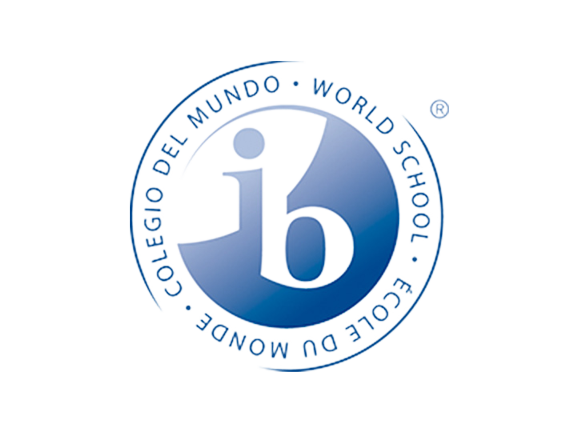Why?
The importance of the Personal Project comes from the fact that it allows students:
– to learn about and develop their personality;
– to show a consolidation of their learning in the MYP;
– to strengthen and present ATL skills acquired during the MYP;
– to demonstrate the IB Learner profile’s attributes;
– to get experiential learning,
i.e. the experience of taking the responsibility to accomplish the project over a long time-period and reflecting on its learning process and outcomes;
– to produce a truly personal and often creative product/outcome;
– to develop as independent, lifelong learners.
PP Requirements
- All students must complete a PP with most of the work done in the final year of MYP (grade 10);
- Students must spend a minimum of 25 hours on their PP;
- PPs are not part of the curriculum of any subject group;
- PPs are internally assessed and standardised by supervisors and externally moderated by the IB examiner in accordance with the PP assessment criteria;
- PP should be done in one of the PP languages approved by the school, i.e. Kazakh, Russian or English (agreed with the supervisor!).
Supervisors and their role
Each student has a supervisor who provides assistance and advice:
- Ensures that the chosen topic complies with legal and ethical standards (health and safety, confidentiality, human rights, animal welfare and environmental issues);
- Guides/assists the students in the process and completion of the project;
- Ensures the authenticity of the submitted work;
- Evaluates the MYP project using the criteria in the handbook;
- Participates in the standardisation of the assessment process established by the school;
- Submits personalised project assessments to the MYP Coordinator for participation in IBIS.
What?
The Personal Project is a compulsory component of the MYP programme. It is learner- centered and age-appropriate and called “personal” because it requires students to develop an area of his/her personal interest resulting in a truly personal and often creative outcome/product. Every student of MYP year 5 (grade 10) completes the Personal Project independently in English or Russian language (IBO, 2014). The student will not be eligible for the MYP certificate if the project is not completed successfully. The Personal Project has three components to be covered by students.
Personal Projects examples
Components of PP
- A product/outcome
Evident in the presentation/report
- Process journal
Extracts in appendices of the report (max 10)
- Report
Reports can be in electronic, oral or visual format. Assessed using all four criteria
Linking the Personal Project to the Diploma Programme
- MYP Personal Project
- Assessment of DP subjects (through the nature of the tasks and presentation style of the report)
- Extended essay DP
- (Although the PP is not necessarily a research essay, it still includes research, use and collection of information and sources)
Evaluation criteria for the Personal Project
- Evaluation criteria
- A: Investigating
- 1. Define a clear goal and context for the project, based on personal interests
- 2. Identify prior learning and subject-specific knowledge relevant to the project
- 3. Demonstrate research skills
B: Planning - 1. Develop criteria for theproduct/outcome
- 2. Plan and record the development process of the project
- 3. Demonstrate self-management skills
C: Taking action - 1. Create a product/outcome in response to the goal, context and criteria
- 2. Demonstrate thinking skills
- 3. Demonstrate communication and social skills
D: Reflection - 1. Evaluate the quality of the product/outcome against student’s own criteria
- 2. Reflect on how completing the project has extended student’s knowledge and understanding of the topic and the global context
- 3. Reflect on student’s development as an IB learner through the project
Project implementation stages
- Investigation – a student will identify an interest and collect information via a range of methods.
- Planning– a student will plan the experience, clarify roles and responsibilities, actions to be taken, resources and timeframes, and acquire any skills for successful completion of the plan.
- Action– implementation of the plan, solving problems, overcoming challenges, achieving the outcome or making the product.
- Reflection – during the whole process a student describes actions, feelings and thoughts, generates ideas and questions in the process journal, and writes about his learning of skills and knowledge
- Demonstration – metacognition, i.e. a student will demonstrate what and how he/she learned and what he/she has accomplished summarizing the experience in the report.
Personal Project Conference
- International IBSA conference 2021 – 2022. More about the conference: http://pp.nisa.edu.kz/
- Plenary session 2021-2022. More about the conference: https://sites.google.com/nisa.edu.kz/personal-project/home
WHAT IS SERVICE AND ACTION?
«Action (learning by doing and experiencing) is a key component in constructivist models of education, including the kind of teaching and learning common to all IB programmes. Service, as a subset of action, has always been a shared value of the IB community. IB learners strive to be caring members of the community who demonstrate a personal commitment to service, and act to make a positive difference to the lives of others and to the environment».
From principles into practice
Service as Action develops collaborative, reflective skills and corresponds to the holistic approach in bringing up an individual. It also encourages students to apply academic knowledge in practice, addressing community needs and assessing own abilities and achievements while fulfilling this component.
Service unit "The world of a teenager", 8C grade student Kozhakhmetov Sanzhar.
Type of service: direct
Service unit Theoretical genetics, project by 10F grade student Lina Ayapbergenova ''Healthy lifestyle promotion''
Type of service: promotion
Service unit Inorganic substances, project "Environmental pollution awareness" by Alina Abuova, grade 10F
Type of service: promotion












